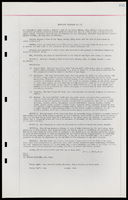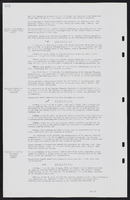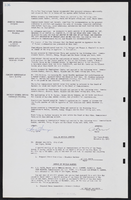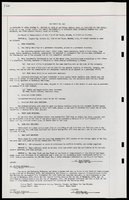Search the Special Collections and Archives Portal
Search Results
Steffen Holding Corporation, 1967-1982
Level of Description
Scope and Contents
The Steffen Holding Corporation series consists of documents and materials from 1967 to 1982. United States Air Force office Dr. Robert Steffen formed the Holding Corporation with Elmo C. Bruner as president in the late 1960s. Bruner identified land for Steffen to purchase as investment property in Southern Nevada as well as along the Colorado River in San Bernardino County, California. Bruner earned a commission on profits. Following Elmo Bruner’s death, his son Jerry, became president of Steffen Holding. The corporation dissolved in the early 1980s.
Archival Collection
Collection Name: Elmo C. Bruner Architectural and Real Estate Appraisal Records
Box/Folder: N/A
Archival Component
Station Casinos, Inc.
Station Casinos, Inc., was started by Frank J. Fertitta Jr. in 1976 in Las Vegas, Nevada as a single gambling facility. The facility was known as The Casino and underwent various expansions over the years before changing its name to the Palace Station in 1983. Fertitta’s son, Frank J. Fertitta III, joined the company in 1984 as vice president and director. Station Casinos continued expanding throughout the 1990s and establishing additional gaming facilities in Missouri including riverboat and dockside gaming in St.
Corporate Body
Audio clip from interview with Melody Stein, August 16, 2016
Date
Archival Collection
Description
In this clip, Melody Stein speaks about working in a new educational facility and the mural her students painted.
Sound







